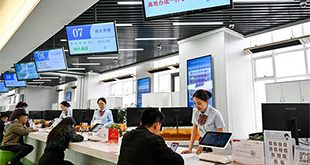
United Nations | Xinhua | Globally, around three in 10 people, or 2.3 billion, do not have handwashing facilities with water and soap available at home, said the UN Children’s Fund (UNICEF) on Friday.
The situation is worst in the least developed countries, with over six in 10 people without access to basic hand hygiene, said UNICEF in a fact sheet on Global Handwashing Day, which falls on Oct. 15.
According to the latest estimates, two in five schools worldwide do not have basic hygiene services with water and soap, affecting 818 million students, of which 462 million attend schools with no facility at all. In the least developed countries, seven out of 10 schools have no place for children to wash their hands.
One-third of health care facilities worldwide do not have hand hygiene facilities at points of care where the patient, health care worker, and treatment involve contact with the patient.
The latest data shows that some progress has been made since 2015. The global population with access to basic hand hygiene at home has increased from 5 billion to 5.5 billion, or from 67 percent to 71 percent. However, if current trends persist, 1.9 billion people will still not have access to basic hand hygiene by the end of the decade.
The cost to provide hand hygiene in all homes in 46 of the world’s least developed countries by 2030 is an estimated 11 billion U.S. dollars. UNICEF urges governments to commit to providing hand hygiene, not as a temporary response to the COVID-19 pandemic, but as an investment in public health and economic resilience.
*****
Xinhua
 The Independent Uganda: You get the Truth we Pay the Price
The Independent Uganda: You get the Truth we Pay the Price



